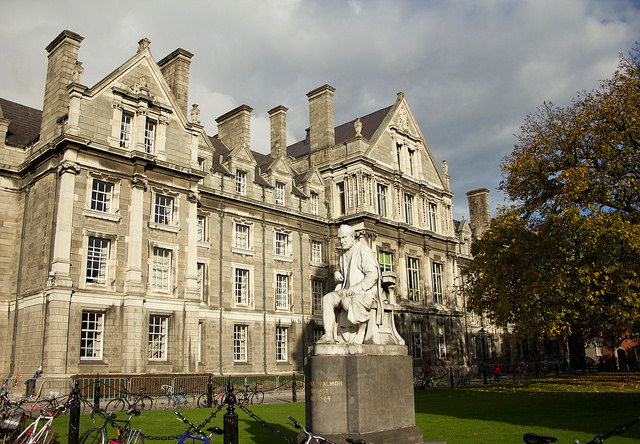The Visitors have upheld a contentious proposal to limit the number of Scholars elected this year, amid fears of a spike in the number of students winning the scholarship.
In their ruling – seen by The University Times – the Visitors determined that it was up to College Board members to decide on the quota system .
The proposal is now set to go to University Council tomorrow for a final decision. If passed, there will be a total of 60 Scholars elected this year, with the quota applying to individual faculties, in order to avoid some subjects attaining a disproportionate number scholarships.
Board, they said, had the power to set a limit on the number of Scholars elected, and that there is no “express power in relation to quotas”.
“We do not believe that an express power is required in circumstances where the Board already has an express power to determine the conditions that must be satisfied by a Student of the College in order to be elected as a Scholar”, they added.
On November 18th, College Board conditionally passed a proposal – based on a memorandum written by Senior Lecturer Kevin Mitchell – to introduce a quota system, which would limit the number of Scholars appointed per faculty, amid fears that grade inflation due to the online format of the exams would lead to a spike in the number of students winning the scholarship.
In the face of some opposition on Board, the proposal, it decided, would be brought to the Visitors who would decide whether or not it breached the statutes.
The quota system has been a major bone of contention among Scholars, and the Scholars’ Committee – alongside Prof Eoin O’Dell – argued to the Visitors that the proposal contradicted the statutes.
Trinity has two Visitors – Chancellor Mary McAleese and Judiciary Chancellor George Bermingham – and, among a number of duties, they decide on appeals against College Board decisions.
A submission – sent to the Visitors by Prof Eoin O’Dell and Secretary to the Scholars Camilla Persello on behalf of the Scholars’ Committee argued that Board could make rules of election on the basis of “academic ability and learning”, which did not cover quotas, and that the statues lay out a specific quota but exclude a general quota.
They also argued that the consent of the University Council was never sought or obtained, and that the policy arguments in favour of quotas are weak.
Senior Lecturer Kevin Mitchell – who has spearheaded the proposal – argued, however, that as long as the number of Scholars does not dip below 70, College could elect as many Scholars as it wanted to.
Schols exams begin next week, and have switched to an online format.
At present, students going for Schols do three to four exam papers. Some 25 per cent of the overall mark must be general questions.
To win a scholarship, candidates must achieve an overall first-class result, 70 per cent in two out of three papers and no lower than 65 per cent in the remaining papers.
The proposal was originally made in a confidential memorandum, reported on by The University Times in October, that stated that a shift to real-time online exams raises “serious concern about possible grade inflation as a result of the changed exam format”.
“This could expose the college to a large financial burden if many more students than normal achieve the criteria for award of scholarship, and it would also devalue the nature of scholarship.”
“It would be extremely difficult to try and recalibrate the criteria for scholarship in advance of the examinations, given the absence of information on which to base any such changes.”
Trinity did not respond to a request for comment by time of publication.
Correction: 10:08, January 20th, 2021
An earlier version of this article incorrectly stated that Maureen Harding Clark is the Judiciary Chancellor. In fact, George Bermingham is the Judiciary Chancellor.







